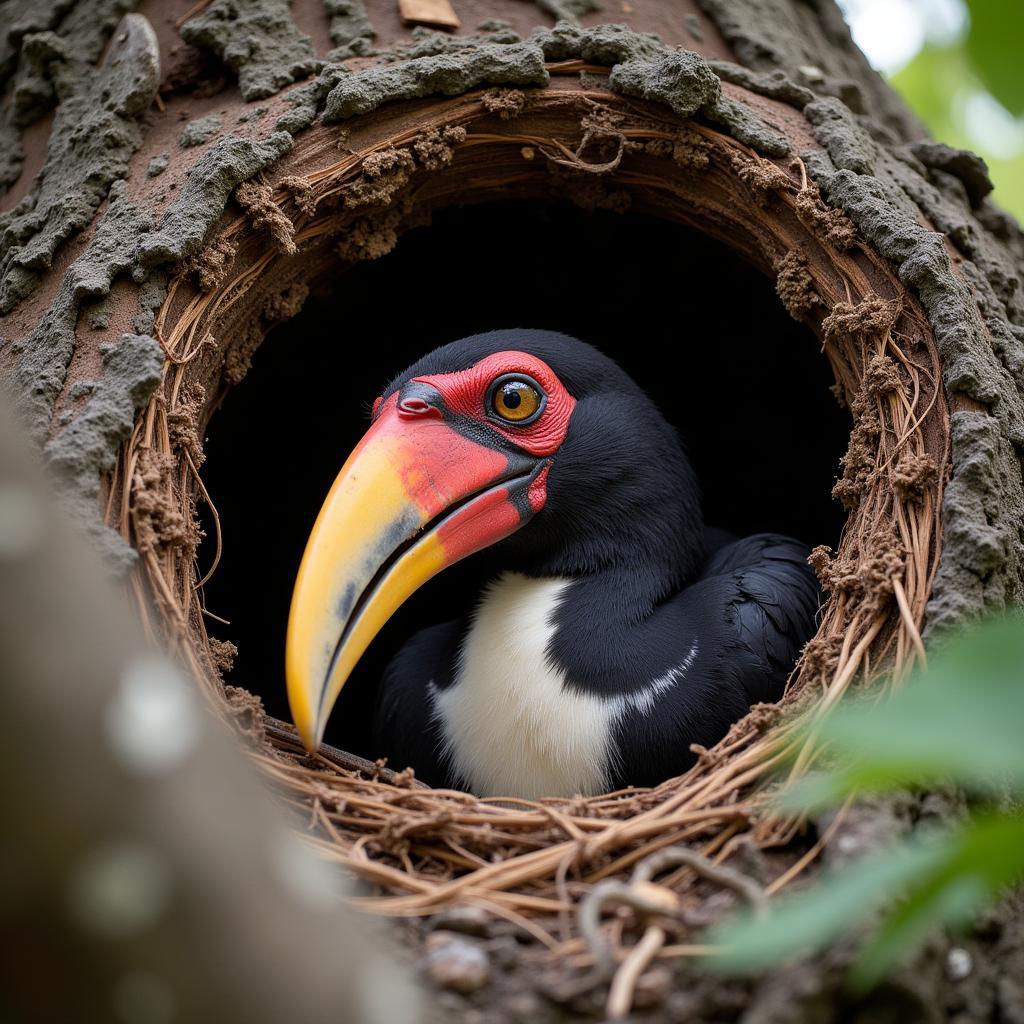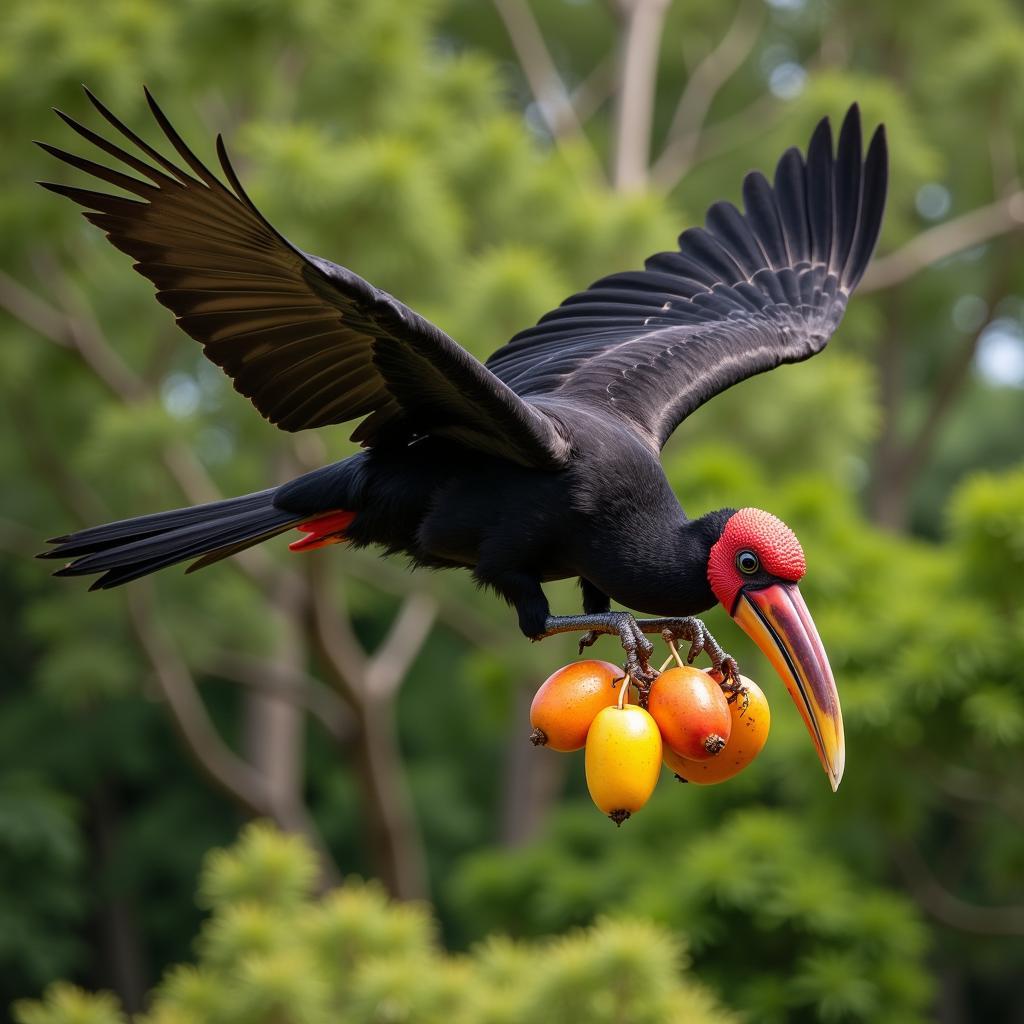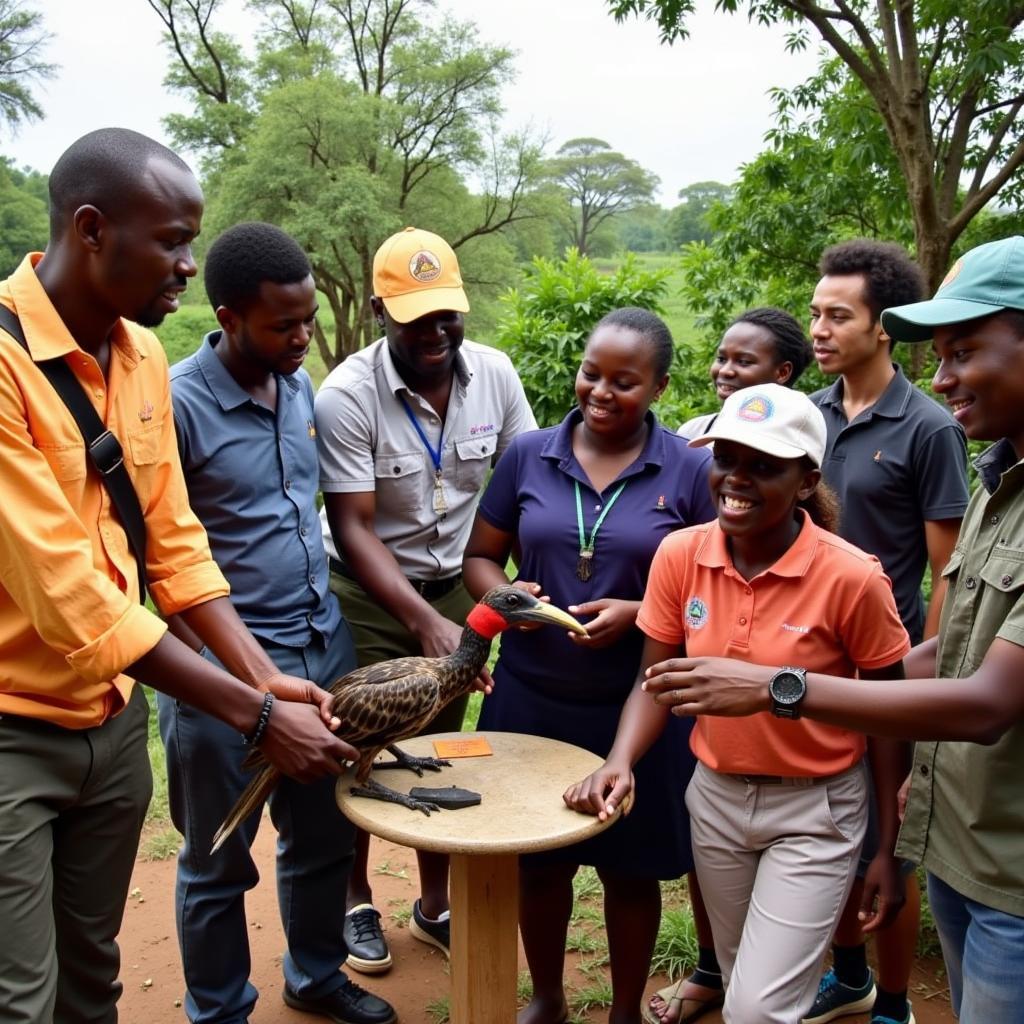African Hornbill News: Recent Discoveries and Conservation Efforts
African hornbills, with their striking appearances and unique behaviors, continue to fascinate researchers and bird enthusiasts worldwide. New discoveries are shedding light on their ecological importance and the threats they face. Conservationists are working tirelessly to protect these magnificent birds and ensure their survival for generations to come.
Unraveling the Secrets of Hornbill Behavior
Recent studies have revealed intriguing insights into the complex social lives of African hornbills. Using radio tracking and long-term observations, scientists have documented cooperative breeding systems, intricate courtship rituals, and remarkable adaptations to their challenging environments.
 African Hornbill Nesting Behavior
African Hornbill Nesting Behavior
One fascinating discovery involves the nesting behavior of certain hornbill species. Females seal themselves inside tree cavities during incubation and chick-rearing, relying entirely on their mates to provide food. This vulnerable period highlights the strong pair bonds and cooperative nature of these birds.
The Crucial Role of Hornbills in African Ecosystems
African hornbills are considered keystone species, playing a vital role in maintaining the health and diversity of their ecosystems. As large frugivores, they are highly effective seed dispersers, helping to regenerate forests and woodlands across the continent.
 African Hornbill Seed Dispersal
African Hornbill Seed Dispersal
“Hornbills act as ‘gardeners of the sky,’ connecting different forest patches and promoting plant diversity,” explains Dr. Joseph Kamau, a leading hornbill expert based in Kenya. “Their decline could have cascading effects on the entire ecosystem.”
Threats to African Hornbills and Conservation Efforts
Despite their ecological importance, many hornbill species face growing threats. Habitat loss due to deforestation, hunting for their casques and feathers, and the illegal pet trade are taking a toll on their populations.
 African Hornbill Conservation Project
African Hornbill Conservation Project
Conservation organizations are working to address these challenges through a combination of research, community engagement, and habitat protection. Initiatives include establishing protected areas, promoting sustainable forest management practices, and raising awareness about the importance of hornbill conservation.
Conclusion
The future of African hornbills depends on our collective efforts to understand and protect them. By supporting conservation initiatives and promoting responsible ecotourism, we can ensure that these magnificent birds continue to grace the skies of Africa for generations to come. Keep up with the latest African Hornbill News and join the movement to safeguard these vital members of the continent’s biodiversity.

